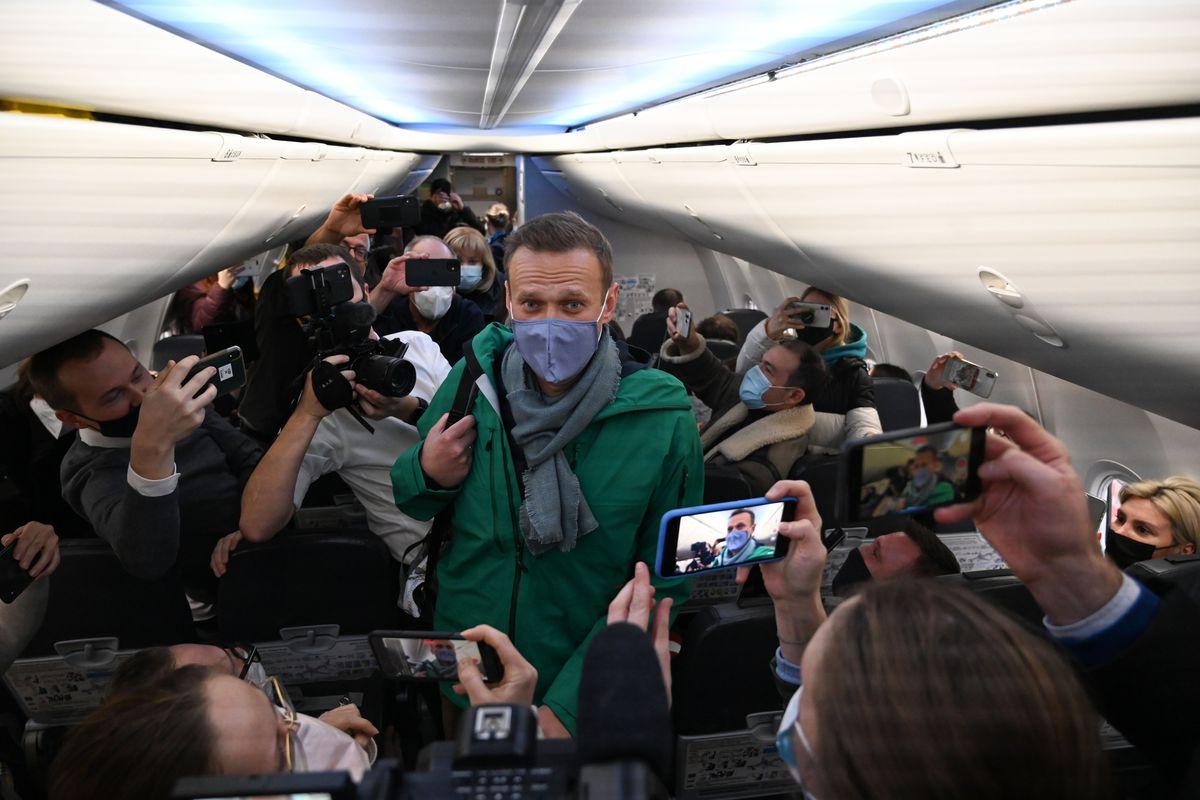

The US and European countries have demanded that Alexei Navalny be released from detention.
Why In News?
Russian authorities detained opposition leader Alexei Navalny at a Moscow airport after he returned from Germany for the first time since his poisoning in August last year. Following this, the US and European countries have demanded that Navalny be released from detention.
Who is Alexei Navalny?
Navalny, a lawyer-turned-activist, came to prominence in 2008 after he started exposing corruption in Russian politics through a blog. In 2018, he was barred from standing against Putin in the presidential elections.
He has also been arrested on multiple occasions and since he started political campaigning, Navalny has spearheaded many anti-corruption rallies in Russia and is considered to be the face of the opposition in Russia, a country that has long been known to eliminate dissidents and spies by poisoning them.
Background:
The German government says Russia's opposition leader, Alexei Navalny, had been poisoned with a Novichok nerve agent.
The most prominent critic of Russian President Vladimir Putin was airlifted to Berlin for treatment after falling ill during a flight in Russia's Siberia region.
The name Novichok last made news in 2018, when Russian ex-spy Sergei Skripal and his daughter Yulia were attacked in the city of Salisbury in the UK.
What is Novichok?
The name Novichok means "newcomer" in Russian, and applies to a group of advanced nerve agents developed by the Soviet Union in the 1970s and 1980s.
They were known as fourth-generation chemical weapons and were developed under a Soviet programme codenamed Foliant.
Novichok's existence was revealed by chemist Dr Vil Mirzayanov in the 1990s, via Russian media. He later defected to the US, where he published the chemical formula in his book, State Secrets.
Moscow is not believed ever to have declared Novichok or its ingredients to the Hague-based Organisation for the Prohibition of Chemical Weapons (OPCW), which oversees a treaty. banning their use.
The weaponisation of any chemical is banned under the 1997 Chemical Weapons Convention, of which Moscow is a signatory.
In November 2019, members of the OPCW agreed to expand its list of banned “Schedule 1” chemicals to include Novichok agents. That ban went into effect on June 7, 2020.
